As we enter 2019, nonagenarians are in the news as never before.
Top of the list is Dr. Mahathir Mohamad, who in May made a pundit-defying return from 15 years in retirement to become Malaysia's prime minister once more. His feat delighted many. According to the South China Morning Post in Hong Kong, the doctor's stunning return "clearly transfixed readers, accounting for about half of the stories in our top 20 list."
His extraordinary mental and physical vigor at the age of 93 has seen Mahathir surf what gerontologists are calling the "silver tsunami." Ninety is being hailed as the new 85 in some quarters. In Japan, where over 26% of the population is now over 65, nearly five people in every 10,000 make it through their 90s to 100, compared with just over two in the U.S. Even so, the U.S. is not doing so badly -- the number of Americans who make it to 90 has tripled since 1980.
In the absence of serious pandemics, the World Health Organization calculated average life expectancy worldwide had risen to 72 by 2016. The U.S. Central Intelligence Agency sees much higher figures for many parts of Asia: Japan, Singapore, Macau and Hong Kong -- where people can reasonably expect to live into their mid to late 80s -- all appear in the top seven global ranking of average life expectancy.
True, great age is often accompanied by infirmity, including conditions such as dementia and Alzheimer's, which places enormous strains on health care infrastructure. Nevertheless, an increasing number of people around the world are remaining active and engaged into their 90s.
In the U.K., for example, Queen Elizabeth, 92, just delivered her 66th Christmas message faultlessly. Weeks earlier, David Attenborough, also 92, made a rousing call for respect of our shared environment at COP24, the U.N. conference on climate change, in Poland.
Here, Nikkei Asian Review presented a selection Asian nonagenarians -- and a couple of centenarians -- who have left their own marks on history (for better and for worse) and who are still managing to make the news.
MAHATHIR MOHAMAD, 93 (MALAYSIA)
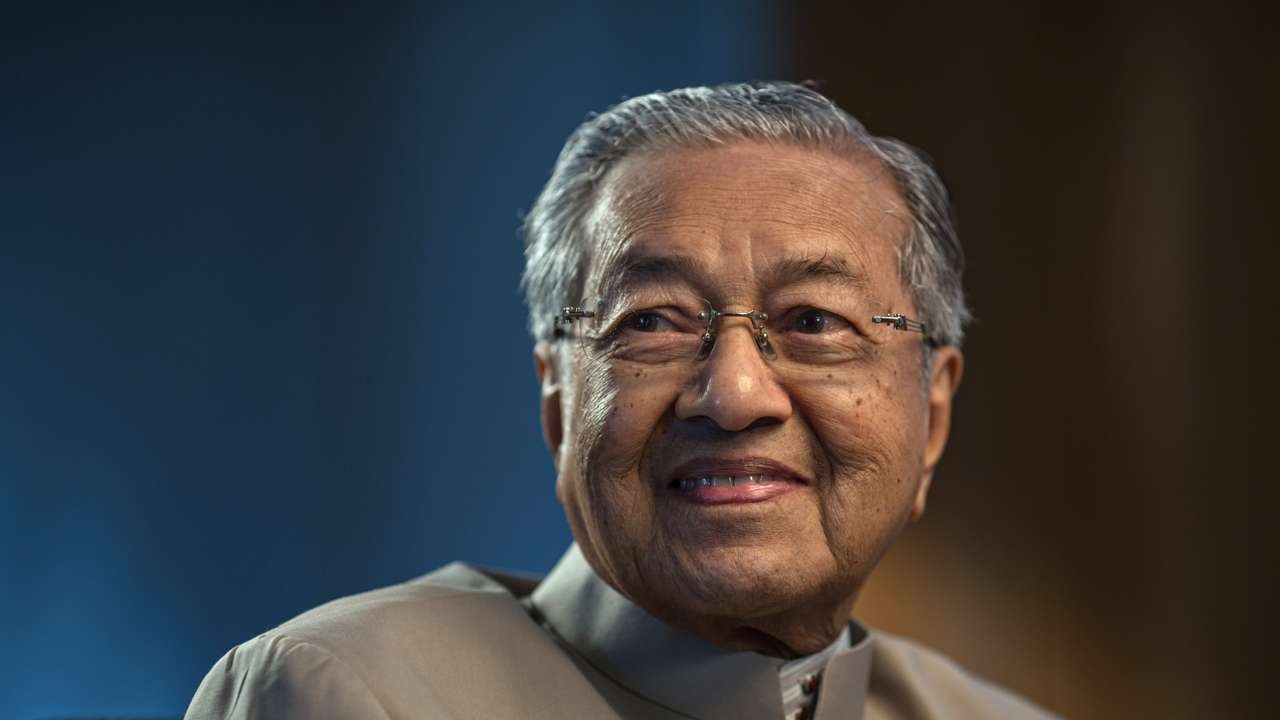
Dr. Mahathir Mohamad is the poster boy for nonagenarians everywhere, the man who in May 2018 confounded analysts and upended Malaysia's political apple cart to return as prime minister -- the job he had retired from 15 years earlier and first occupied 22 years before that.
Much more of an advocate of freedom of speech than he ever was, Mahathir is outwardly more liberal -- even occasionally contrite. His government has already ordered a moratorium on the death penalty, sparing some 1,267 souls on death row, and announced the suspension of the British colonial-era Sedition Act pending its abolition. In defecting to the opposition from the long-ruling United Malays National Organization-led Barisan Nasional coalition, Mahathir settled differences with former political foes. Indeed, he has promised eventually to hand over power to his estranged deputy from the 1990s, Anwar Ibrahim, who languished in prison for years following a controversial conviction on sodomy charges.
"I haven't much time left," a moist-eyed Mahathir confessed to a young girl in a campaign video. "I have to do some work to rebuild our country -- perhaps because of mistakes I myself made in the past." Indeed, Mahathir was unhappy with both of his successors, Abdullah Ahmad Badawi and Najib Razak, the latter mired in a multibillion-dollar financial scandal involving state fund 1Malaysia Development Berhad that has left him facing possible prison terms.
Despite some health scares -- a heart attack and bypass surgery in 1989, further coronary surgery in 2007, and more recent chest problems -- Mahathir retains a good head of hair and appears healthier and more vigorous than many 20 years his junior. Noted for his monkish appetite, he remains happily married after 72 years to Siti Hasmah, 92, also a doctor of medicine.
Mahathir has not recanted all of his more conservative views, however. "At this moment, we don't accept LGBT," he told students at Thailand's Chulalongkorn University in October, describing gay and transgender people as incompatible with the "institution of marriage and institution of family." He has taken a tough line renegotiating disadvantageous deals with China by cancelling a high-speed rail link to Singapore, spoken up for up for the Palestinians at the United Nations, and rebuking Aung San Suu Kyi, Myanmar's state counsellor, for the country's treatment of the Rohingya, a Muslim minority people. Indeed, at a time when the Association of Southeast Asian Nation appears rudderless, Mahathir has returned not only as the bloc's oldest-ever prime minister, but also as its most articulate and principled -- irrespective of whether one agrees with all his views.
Lee Shau Kee, 90 (Hong Kong)

Lee Shau Kee, the real estate tycoon and philanthropist with obscure origins in Shunde, Guangdong Province, moved to Hong Kong shortly ahead of the communist takeover of the mainland in 1949. The second-wealthiest man in Hong Kong today, he chose to celebrate his 90th birthday in early 2018 with 37 graduates who had received scholarships from him between 1979 and 2006 to study at Wadham College, Oxford. "Thanks to his munificent support, the Lee Shau Kee program became one of the most important scholarship schemes Oxford has ever seen," said Ken Macdonald, Wadham's warden.
Lee's other major educational donations over the years include 500 million Hong Kong dollars (about $64 million) to the University of Hong Kong and HK$400 million to the Hong Kong University of Science and Technology. In May 2018, he donated HK$100 million to Hang Seng Management College -- a contribution that helped him make good on a promise to donate HK$ 1 billion to charity when the Hang Seng Index passed 30,000 points again, which it did on Nov. 22, 2017.
The majority owner of Henderson Land Development, a property-based conglomerate he founded in 1976, Lee was worth an estimated $31.5 billion at the start of 2018, according to Bloomberg, placing him 27th in world wealth rankings, though he ended the year worth around $28 billion.
Known by some as Uncle Four for being his family's fourth-born child, Lee said in a 2014 interview that he was retiring gradually. "It's a matter of energy," he said. "I only deal with the most important tasks." According to Bloomberg, he once said he would exchange 99% of his wealth for another 30 years of time.
Lal Krishna Advani, 91 (India)

Lal Krishna Advani, a leading member of India's ruling Bharatiya Janata Party, celebrated his 91st birthday on Nov. 8. He entered politics in the 1940s and has been elected to parliament 11 times, serving twice as leader of the opposition. He currently represents Gandhi Nagar, the capital of the western state of Gujarat -- the home base of Prime Minister Narendra Modi.
L.K. Advani, as he usually called, is regarded as the BJP's patriarch after the passing of former Prime Minister Atal Bihari Vajpayee in August at the age of 94. He was a founding member of the party in 1980 and has ideological links to the Hindu nationalist Rashtriya Swayamsevak Sangh, or National Volunteers Organization.
Advani was deputy prime minister and home minister from 2002 to 2004 during the premiership of Vajpayee, and was the BJP's choice for prime minister in the 2009 general election, which the party lost. He continued to bid for the top post until mid-2013 when Modi, his onetime protege, was declared the face of the BJP and in September that year became its candidate for prime minister in the 2014 election.
Advani was sidelined in the party he had helped build. After the BJP's landslide in 2014, he was not offered a ministerial portfolio, but instead made a member of the Margdarshak Mandal, an advisory council to guide the party leadership.
If Advani goes for a 12th term in the May 2019 general election, he could challenge the record as India's oldest parliamentarian of the late Rishang Keishing, the member of parliament for the northeastern state of Manipur who retired in 2014 at the age of 94. Advani's 2008 autobiography "My Country, My Life" sold over a million copies. He says walking is the secret to his fitness.
Sadako Ogata, 91 (Japan)

Sadako Ogata is a Japanese academic, diplomat and noted humanitarian who attended Georgetown University in the early 1950s, a time when few of her compatriots studied abroad. She later attended the University of California, Berkeley, and in the 1980s was dean of foreign studies at Sophia University in Tokyo.
After earlier stints representing Japan at the United Nations, she served in 1990 as the independent expert for the U.N. Commission on Human Rights in Myanmar -- an unrewarding appointment given the intransigence of the ruling junta at the time. Her tenure as U.N. High Commissioner for Refugees lasted from 1991 to 2000, and saw her take a leading role in refugee crises in Iraq, the Horn of Africa, the former Yugoslavia, Rwanda and Afghanistan, among others.
Ogata went on to co-chair the U.N. Commission on Human Security with Professor Amartya Sen, a Cambridge economist and Nobel laureate. In 2004, U.N. Secretary-General Kofi Annan invited her to join his high-level panel on threats to global peace.
Ogata remains a distinguished fellow with the Brookings Institution, honorary chair of the advisory board of the U.N. Trust Fund for Human Security, and is still an adviser to the Japan Model United Nations. The University of London's Sadako Ogata Scholarship continues to support outstanding impoverished students from low-income countries.
A Rotary Foundation Fellow in 1951, the sprightly Ogata was awarded a Rotary International Alumni Global Service Award in 2017.
Accepting her award, she spoke of her early years in the U.S. "It was very exciting," she recalled. "Americans were generous -- this was the time when America was very confident as a world leader."
Kim Yong Nam, 91 (North Korea)

Kim Yong Nam, president of North Korea's Presidium of the Supreme People's Assembly since 1998, is nominally second in seniority in the hermit nation's hierarchy, behind only supreme leader Kim Jong Un.
The resolutely raven-haired Kim keeps busy. He attended the investiture of Andres Manuel Lopez Obrador as president of Mexico at the start of December, a few days after meeting Venezuela's embattled President Nicolas Maduro in Caracas, where gifts and memoranda were exchanged. According to Pyongyang's state media, Kim assured Maduro that Venezuela's "struggle for anti-imperialist self-reliance, peace and socialism" will forge ahead.
Kim was promoted to foreign minister in 1983 under dynastic patriarch Kim Il Sung after North Korean agents bombed and killed 21 South Koreans in the entourage of President Chun Doo-Hwan in what is today Yangon. "To call him a survivor is an understatement," said a retired Western diplomat who once resided in Pyongyang. "He appears to have continued to thrive through all three administrations."
"He is an amiable technocrat who faithfully follows the leader's directions," Professor Yang Moo Jin of the University of North Korean Studies told French news agency AFP. Yang said analysts dubbed him "the tape recorder" because "he always parrots what has been said by the supreme leader."
When Kim accompanied Kim Jong Un's sister, Kim Yo Jong, to the Winter Olympics in South Korea in February, he tried to ditch protocol and have her sit first for tea with South Korea's minister of unification. She pulled rank and made the old apparatchik take his seat first. It was Kim's third round of Olympic diplomacy after Beijing in 2008 and Sochi, Russia, in 2014.
THICH NHAT HANH, 92 (THAILAND)
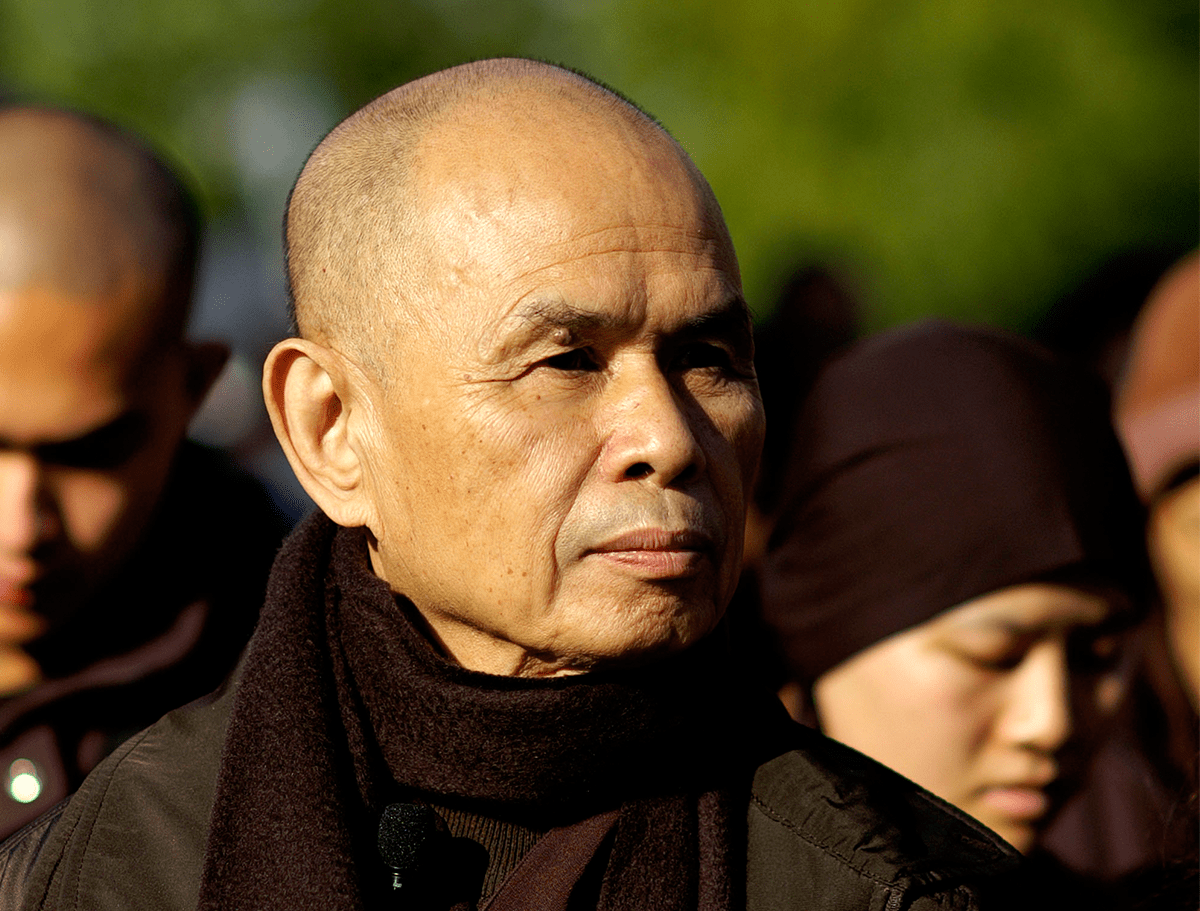
Followers of Thich Nhat Hanh describe him as "our beloved teacher, the Zen master, global spiritual leader, peace activist and poet." But they call him simply Thay -- "Teacher."
Considered by some as the world's second most influential living Buddhist after the Dalai Lama, Thich Nhat Hanh returned to Tu Hieu Temple near his native Hue, Vietnam, in late October. It was here that he became a novice in 1942, at the age of 16, and it is here that he intends to spend his last days.
Thich Nhat Hanh lived in exile from 1966, mainly in the U.S. and France. Credited with coining the term "engaged Buddhist," he was allowed to return to Vietnam for the first time in 2005 and again in 2007, but in 2014 he suffered a serious stroke that has left him unable to speak. He has convalesced in the U.S., France and from late 2016 in Thailand at one of his global network of Plum Villages near Khao Yai National Park. The most famous of these monastery-retreats also open to lay people was founded in 1982 in France near the medieval town of Saint Emilion.
Thich Nhat Hanh first garnered international interest in the early 1960s with stints in the U.S. at Princeton, Columbia and Cornell universities as he sought peaceful solutions to the escalating Vietnam War. In 1967, Martin Luther King Jr. nominated him for the Nobel Peace Prize: "Here is an apostle of peace and nonviolence, cruelly separated from his own people while they are oppressed by a vicious war which has grown to threaten the sanity and security of the entire world," King eulogized.
The prize was not awarded that year, but Thich Nhat Hanh persisted in his efforts. He led the Buddhist Peace Delegation at the Paris Peace Accords that concluded in 1973 without ending the fighting in Indochina -- and which ironically resulted in U.S. Secretary of State Henry Kissinger, 95, being awarded the Nobel Peace Prize despite the Christmas 1972 bombing of Hanoi. Noted for his ecumenicalism, Thich Nhat Hanh launched a campaign in 2014 to eliminate slavery around the world by 2020.
NUON CHEA, 92 - CAMBODIA
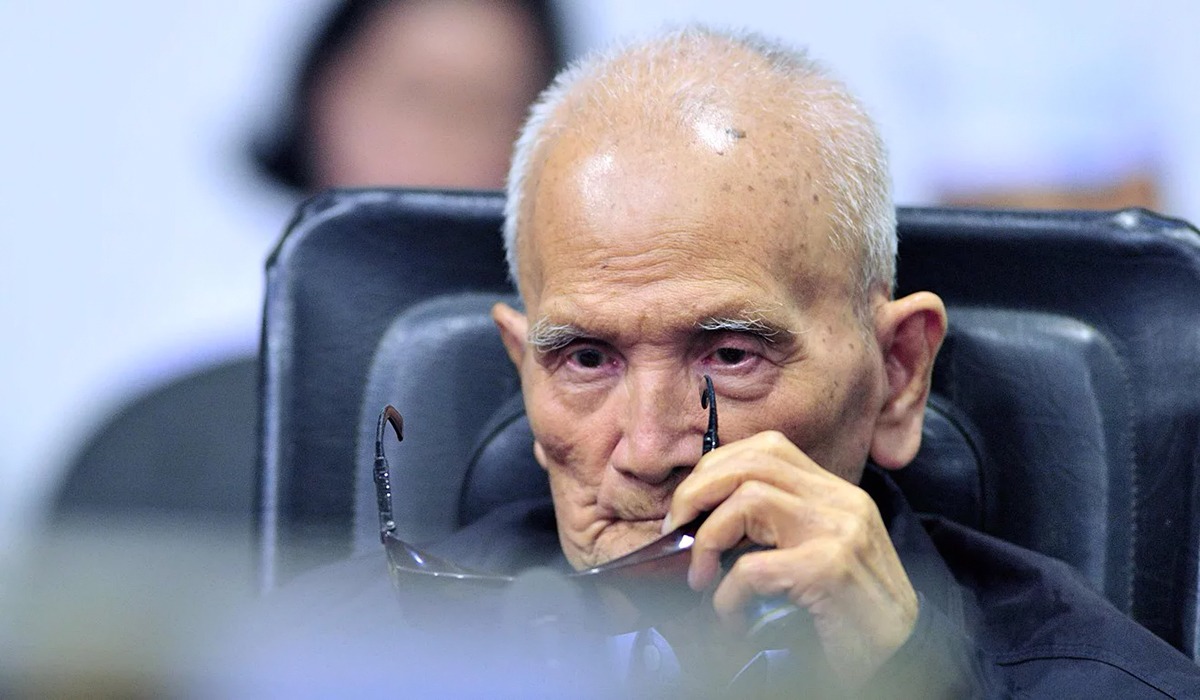
It took decades, but justice finally caught up with the Khmer Rouge's "Brother No. 2."
Nuon Chea was, as his code name implied, second-in-command in the ultrasecretive politburo of Angkar, the communist party behind Cambodia's Democratic Kampuchea regime of the late 1970s. In November, he and Khieu Samphan, 87, the regime's former president, were finally convicted of genocide against Cham and Vietnamese minorities.
Nuon Chea is the most important surviving Khmer Rouge leader from the holocaust that occurred between the fall of Indochina at the end of the Vietnam War in mid-1975 and the ousting of the regime by invading Vietnamese forces at the end of 1978. An estimated 1.8 million people -- around a fifth of the population -- were executed, murdered, or died from medical neglect, starvation or overwork. He and Khieu Samphan are two of only three people to be convicted by the U.N.-backed Extraordinary Chambers in the Courts of Cambodia, which was first mooted in 1997 and has cost in excess of $200 million. (The pair were also convicted by the ECCC of crimes against humanity in 2014, a verdict they unsuccessfully appealed.)
Wizened and wearing dark glasses the size of televisions, the once stocky, square-jawed Maoist revolutionary is an alumnus from the 1940s of Bangkok's prestigious Thammasat University and a fluent Thai speaker. His boss, Pol Pot (who went by his true name of Saloth Sar while studying electrical engineering in Paris), signed almost nothing that has survived. By contrast, Nuon Chea's "fingerprints" were found on numerous documents ordering purges and executions, including of women and children.
Like Germany's Nazis, the Khmer Rouge could be remarkably bureaucratic. Nuon Chea's signature appears on countless papers the regime failed to destroy before fleeing Phnom Penh and the approaching Vietnamese. When he first apologized for Cambodia's numerous charnel houses, he diluted the effect by also expressing regret for the loss of livestock. Nuon Chea's lawyers said they would appeal his conviction.
JUAN PONCE ENRILE, 94 (PHILIPPINES)
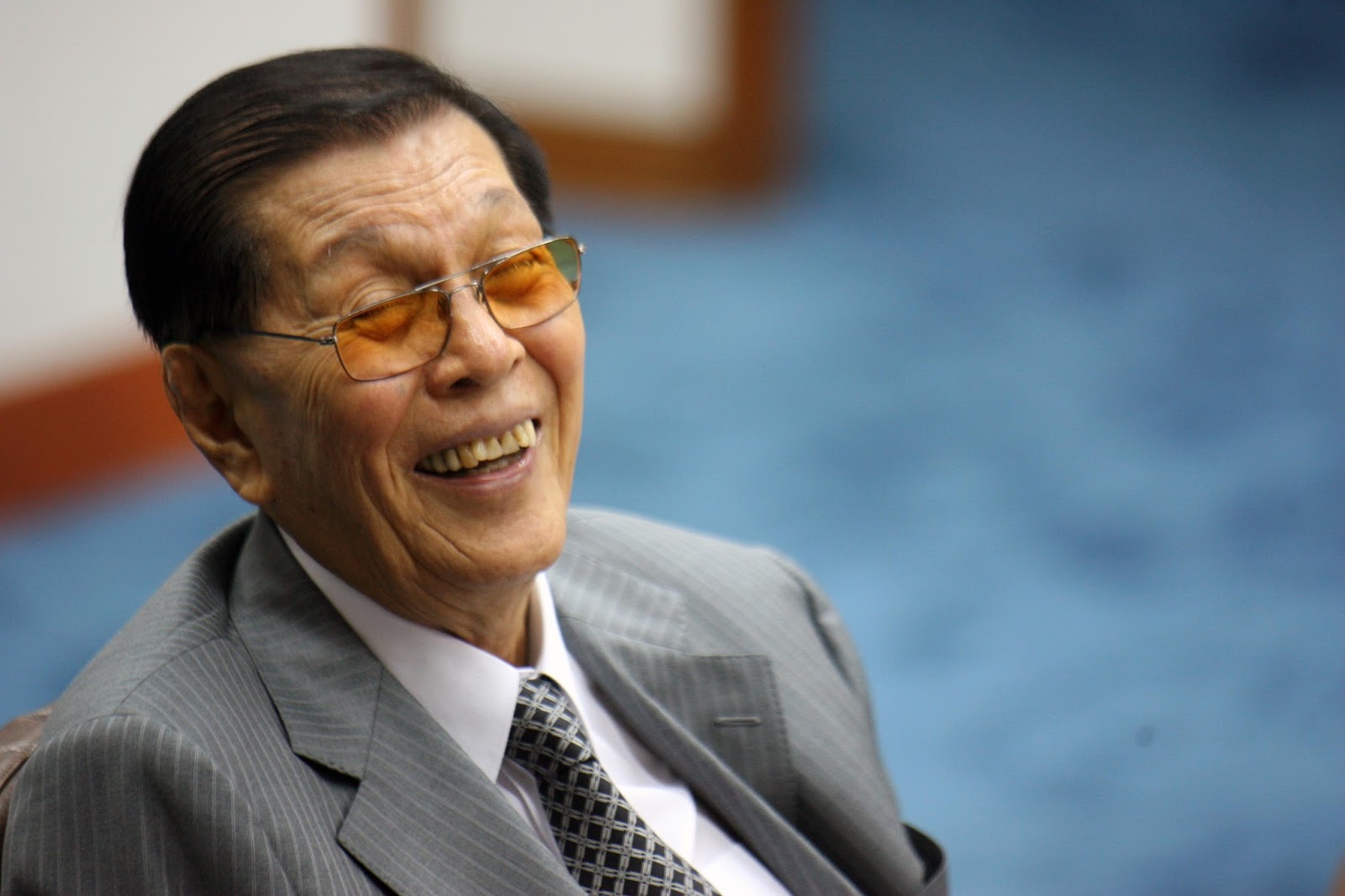
Juan Ponce Enrile has played a long and storied role in Philippine politics. The veteran senator served as president of the senate from 2008 to 2013, and was minister of defense under President Ferdinand Marcos from 1972 to 1986, when martial law was in place.
One of the pretexts for implementing martial law in September of that year was the supposed ambush of Enrile's car. Enrile moved apart from Marcos after the assassination of opposition leader Benigno Aquino upon his return from exile overseas in 1983. He went on to play a leading role in the coup that ousted Marcos in 1986 during the People Power Revolution that brought Aquino's wife, Corazon, to the presidency. He served in her cabinet, but the two later fell out.
Enrile has been involved in a number of financial and personal controversies, but remains feisty and can be provocative in his recollections of the Marcos years. According to Rappler, an online news service, Enrile recently told reporters that he would like to live to be 110. "I'm not saying I'm immortal, but only God knows," he said. "My blood pressure is 120 over 60," he told a young female reporter who queried his medical state. "What's your blood pressure?"
ROBERT KUOK, 95 (MALAYSIA)
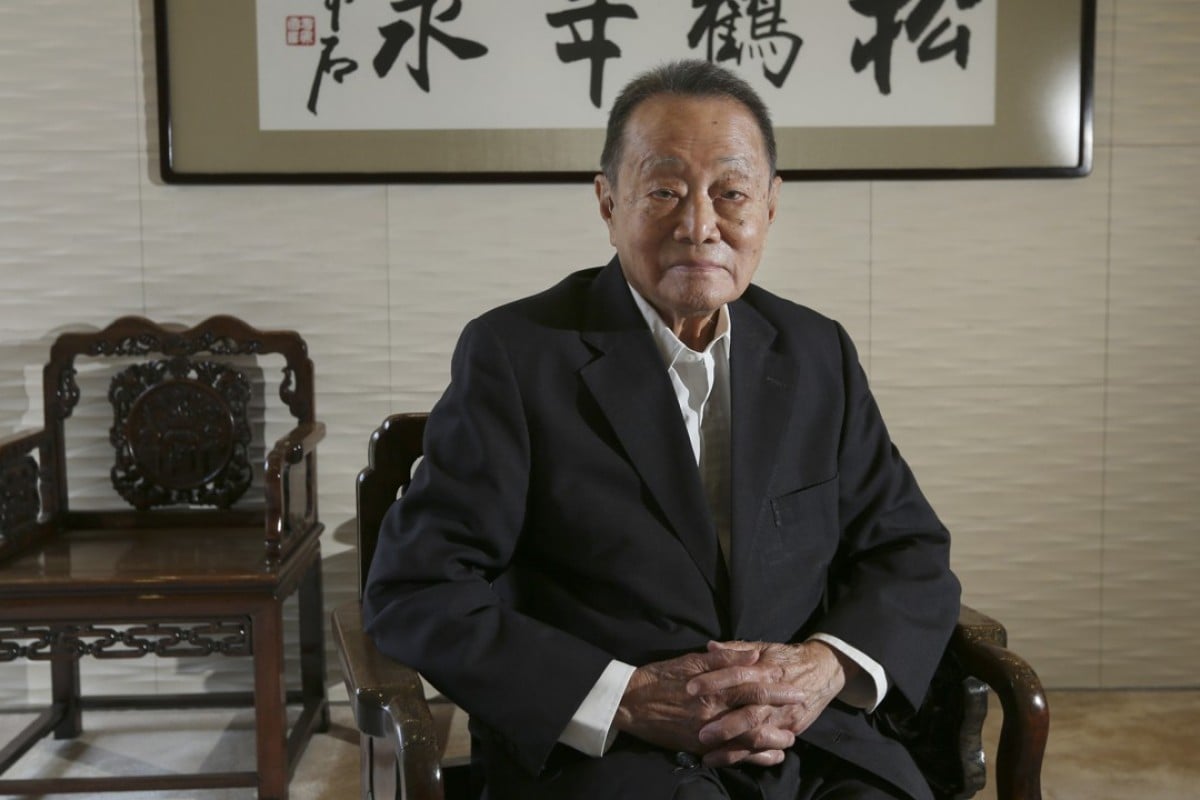
Robert Kuok, Malaysia's wealthiest man with a net worth estimated at nearly $15 billion, is a first-generation Malaysian of Fujian ancestry born in Johor Bahru. He gained experience in rice-trading working for Mitsubishi from 1942 to 1945 during the Japanese occupation of Southeast Asia, and learned to speak his employer's language. After the war, he co-founded Kuok Brothers with his older brothers and a cousin, trading in rice, wheat and sugar. He went on to gain control of Malaysia's sugar industry.
Kuok's many subsequent personal business interests included hospitality (in 1971 he founded what is today Shangri-La Hotels and Resorts, with over 100 properties), palm oil trading (he is the main shareholder in Singapore-based Wilmar International), and newspapers (he has been a shareholder in the South China Morning Post and Bangkok Post). Unimpressed by Malaysia's Bumiputra policy favoring the ethnic Malay majority, Kuok relocated to Hong Kong in 1979, and counts Li Ka-shing, Hong Kong's richest man, among his 20 or so billionaire neighbors there in ultra-exclusive Deep Water Bay.
In "Robert Kuok: A Memoir," written with former Forbes journalist Andrew Tanzer and published in 2018, the usually circumspect businessman recalled his sometimes controversial life story and remarkable networking in China and Southeast Asia. Kuok described the indefatigable, enterprising overseas Chinese as "unsung heroes of the region," and recalled his dealings with men like President Suharto of Indonesia, Prime Minister Lee Kuan Yew of Singapore and Chin Sophonpanich, the founder of Bangkok Bank. He also lauded Chinese President Xi Jinping.
After Mahathir Mohamad trounced Prime Minister Najib Razak at the polls in May, Malaysia's returning prime minister included Kuok in his five-member Council of Eminent Persons, which convened later that month. "You saved the country," Kuok told Mahathir. "I need your help now," Mahathir replied.
PREM TINSULANONDA, 98 (THAILAND)

Prem Tinsulanonda was born in the southern Thai province of Songkhla in 1920 and entered the military early in World War II. He had been Thailand's army chief for two years when he became prime minister in 1980, and remained in office through five cabinets and three general elections until August 1988, when he finally stepped aside.
Noted for a disarming smile that conceals a steely, cautious nature, Prem was never elected but appointed by parliament according to the constitutional rules of the time. During his long army career, he was latterly instrumental in defusing a simmering communist insurgency and in negotiating the safe return of students who fled to remote insurgent areas after a brutal right-wing crackdown in 1976.
Prem's years as prime minister were noted for incremental democratization, rapid economic growth, the industrialization of Thailand's eastern seaboard, development of the tourism industry, the final eradication of communism, and successful reconciliation efforts in the country's Muslim majority provinces in the deep south.
After leaving the premiership, he was appointed to King Bhumibol Adulyadej's privy council, and succeeded Sanya Dharmasakdi as the president in 1998. Prem retained influence in military circles, with a say in military promotions that has only ebbed in recent years. He was widely perceived to have been a key player in the coup that removed Prime Minister Thaksin Shinawatra in 2006.
Since the reign of King Maha Vajiralongkorn Bodindradebayavarangkun began in 2016, the privy council has been overhauled and is now composed predominantly of retired generals -- like Prem himself, but younger. There has been no mention of his retirement from public life.
CHANG YUN CHUNG, 100 (SINGAPORE)

Chang Yun Chung, the world's oldest billionaire since the death of David Rockefeller in 2017 at the age of 101, has always been a bit of a late starter. He did not join the billionaire rankings until the age of 97, and only got around to founding his successful privately owned shipping business, Singapore-based Pacific International Lines, in 1967, when he was already 49.
PIL, which began with two old Dutch freighters, has expanded to over 170 container ships serving the China market, as well as the rest of Asia and Africa. The company's other interests include a container factory in Shanghai, opened in 1989, and a majority stake in Mariana Express Lines, which it acquired in 2015.
The reclusive Chang, born in Kinmen in China's Fujian Province at the end of World War I, was held by the Japanese during World War II for supplying the resistance in Malaya. In 1949 he moved to Singapore, where he entered the shipping industry. He is estimated to be worth $1.9 billion by Forbes magazine, which ranked him the 15th-wealthiest person in Singapore and the 1,284th richest in the world in 2018.
Although in April he finally handed over the PIL chairmanship to one of his sons, Teo Siong Seng, 64, Chang comes to work every day, and continues to advise the company as chairman emeritus. "I cannot stay at home," he told CNBC, saying he would get "very, very bored."
PIL took delivery of 13 new ships in 2018, and is developing a blockchain system with DP World, Port of Singapore and IBM for seamless freight handling. "I am very honest," Chung once said, pondering his success. "Whatever, I promise, I always fulfil."
Tao Porchon-Lynch, 100
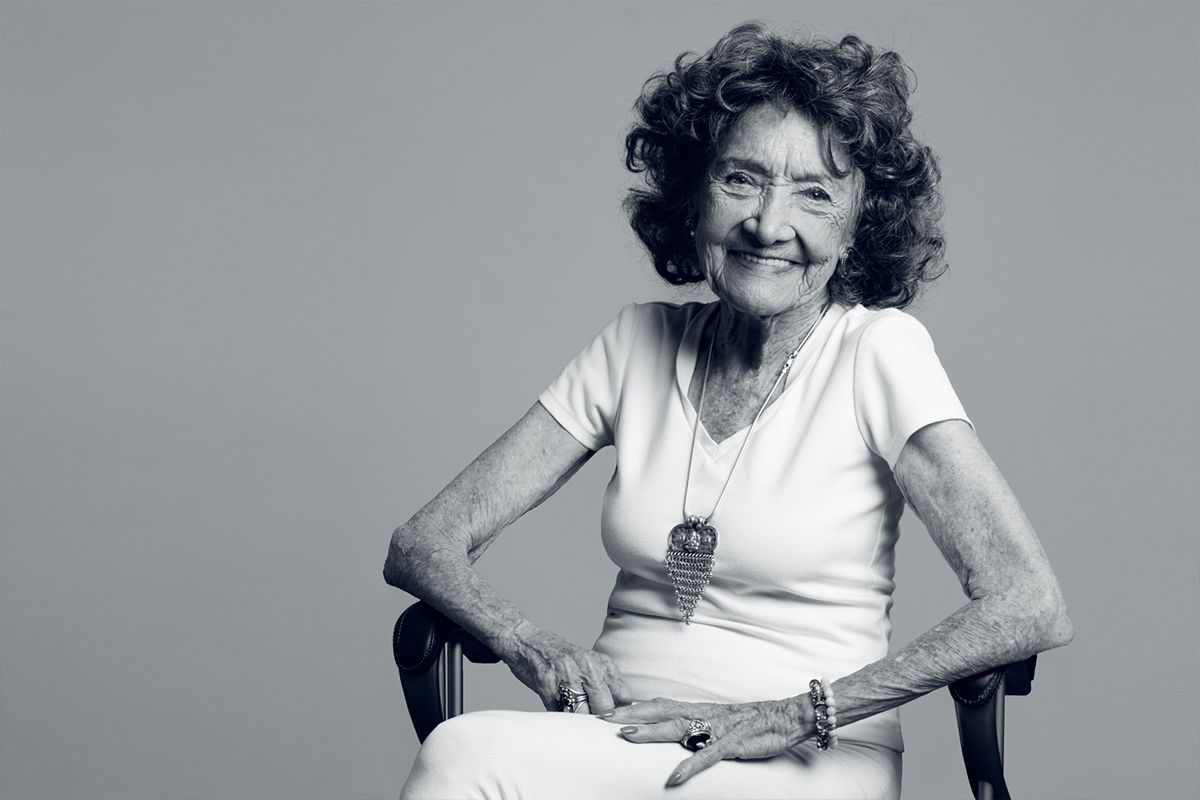
Tao Porchon-Lynch, who is of Indian-French ancestry, was raised in Pondicherry, India. It was there at the age of 8 that she saw her first yoga practitioners, but was told by an aunt that yoga was "not ladylike."
More than nine decades later, Porchon-Lynch is an active yoga teacher who has led retreats around the world and -- despite three hip replacements -- can still adopt the cross-legged lotus position.
She holds two Guinness World Records. In 2012, she was recognized as the world's oldest yoga teacher, and five years later as the world's oldest competitive female ballroom dancer. She took up the latter pursuit at the age of 87, and particularly liked the tango. When she was 96, she appeared on NBC's "America's Got Talent" dancing with her 26-year-old partner, Vard Margaryan.
Porchon-Lynch modelled for French fashion houses after World War II, and for a while in the 1950s was on contract as an actor to MGM studios in Hollywood. She later worked in film distribution in India. Her late second husband, Bill Lynch, was in the wine business in New York, and she co-founded the American Wine Society in 1967.
She still lives in New York, teaches six to eight yoga classes each week, and says she drinks only wine or tea.
In 2015, she published her autobiography, "Dancing Light: The Spiritual Side of Being through the Eyes of a Modern Yoga Master."
Two years later, she gave an interview to Hong Kong Tatler. "Know that there is no such thing as age," she said. "True yoga helps you control and still the mind so you can harness that power. Proper breathing also is the gateway to tranquility, longevity and vitality."
Source : Nikkei Asian Review


















